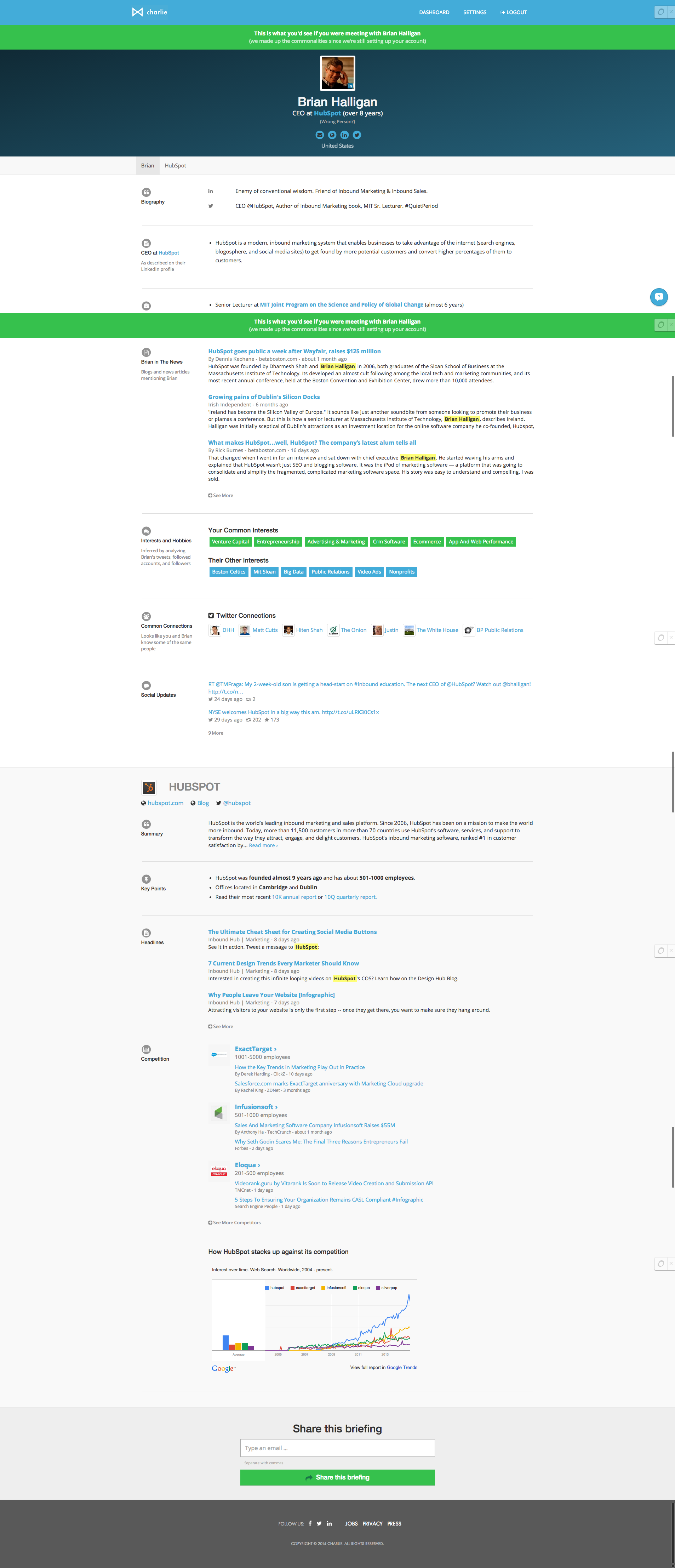Subscribe now and get the latest podcast releases delivered straight to your inbox.
 There's a scene in The Wolf of Wall Street where Jordan Belfort pulls out a pen and says to the audience: "sell me this pen."
There's a scene in The Wolf of Wall Street where Jordan Belfort pulls out a pen and says to the audience: "sell me this pen."
People begin to fumble through sales pitches, as Belfort stresses the importance of identifying a need and selling to that need.
You see, often times it's not what your sales team is selling, but how they are selling it that is going to have an impact on your bottom line.
Not to mention that on average, it takes 8.4 tries to reach a live prospect on the phone. (Source: HubSpot)
8.4 tries.
If your sales team is improvising their way through a call, you're at risk of losing the person on the line, which is why we've identified 3 mistakes that will cause a good sales call to go bad, and what your team can do to course correct.
Lack of preparation
Often times your sales team will find themselves jumping from LinkedIn to Twitter to a Google search and back to LinkedIn to gather some background on a prospect. This is a huge time suck.
Crunched for time already, this puts your sales team at risk of heading into their next call unprepared.
While they may be under the impression that they can resolve their initial lack of preparation in a follow up call, there might not be a second chance.
Not to mention, first impressions carry a lot of weight. If a sales rep sounds unready, it often reflects negatively on the company as a whole.
How to course correct:
Charlie app is a virtual personal assistant that automatically briefs you on people before you jump into a meeting or call.
Charlie combs through various online sources to collect a super detailed report on the person you'll be speaking with. This report covers everything from basic information like bio, job title, and location to more in-depth insights like common connections, recent news features, and social updates.
Here's an example of the background Charlie was able to pull about HubSpot's CEO, Brian Halligan:

But wait, there's more...
Serving as an evolution of HubSpot's Signals product, Sidekick is another valuable sales tool that provides users with in-depth insights about the people and companies they're connecting with on a daily basis.
Sidekick connects to your inbox as well as the new CRM, granting users access to a number of features designed to streamline their sales communications. For example, Sidekick notifications provide your sales representatives with detailed reporting in real-time.
These notifications reveal when, where, and how prospects are engaging with your website and email content. Whether you're working to retain clients or nurture prospective ones, these insights provide a level of transparency that will help your sales representatives create more meaningful, timely connections.
Talking too much
We all know salespeople can talk.
Trouble is, if they're talking, they're not listening.
Prospects are skeptical. They've been schmoozed, mislead, and lied to far too many times to hang on every word your salespeople say.
The more they listen, the more persuasive their words will be when it is their turn to talk.
How to course correct:
I recently tuned into a TEDTalk from Julian Treasure, a sound consultant who studies sound and advises business how to use it.
In the talk, Julian details several exercises that are designed to help people "re-tune" their ears. Of the five, I found the last one to be particularly relevant for sales teams.
While most acronyms tend to get a little cheesy, this one serves as an effective reminder for your prospect-facing employees:
Receive: pay attention to the person.
Appreciate: use noises and small interjections like "mmm" or "really?" to show that you're engaged.
Summarize: reiterate their claims to reinforce them for yourself and prove that you've heard them .
Ask: follow up with questions to clarify any confusion and gain additional insight.
(Want to listen to Treasure's TEDTalk yourself? Click here.)
Hesitation
While hesitation on the prospect's end can help a salesperson to better identify needs that they can then begin to negotiate, it's troublesome if the salesperson is the one hesitating.
The fear of coming on too strong often stifles their ability to move the sale forward.
They want to ask tough questions, but they're worried about stirring up a debate.
In order to gain the level of respect necessary for a prospect to buy in, your sales team must know how to remove their personal indecision from the situation.
How to course correct:
Pete Caputa, VP of sales at HubSpot, recently wrote an article titled, 5 Weaknesses That Cripple a Sales Rep's Ability to Qualify.
In one section, he detailed the salesperson's "need for approval", and how it influences a potential sale.
To combat this, he goes on to talk about strategies he uses to help reps move past this type of hesitation.
Check it out:
1) Shift your mindset
It can be challenging for a salesperson to get comfortable with asking uncomfortable questions. However, in order to reveal the root of the problem, tough questions are necessary. That's how you help.
The fact of that matter is, people aren't always pleasant. Nor or are always receptive to criticism.
If your salespeople let the fear of being unlikable plague their ability to ask necessary questions, their putting the sale at risk.
Caputa's solution? Alter your mindset.
"I see sales as a virtuous profession that helps people solve problems, and the hard questions are a part of figuring out whether a rep can actually help," he says.
Developing the right mindset for what you're looking to accomplish can make all of the difference.
2) Prepare for push back
Push back is inevitable. However, rather than allow resistance to deviate from the success of the call, it's critical that your salespeople are prepared to respond accordingly.
To push the conversation back on track, your salespeople have to be ready to answer the following questions:
Why should you ___?
How ____ should/can be done?
What are the potential consequences if you don't do ____?
Anticipating push back before it's brought into view will help you quickly absolve doubt by providing the necessary support or clarification.


Order Your Copy of Marcus Sheridan's New Book — Endless Customers!

